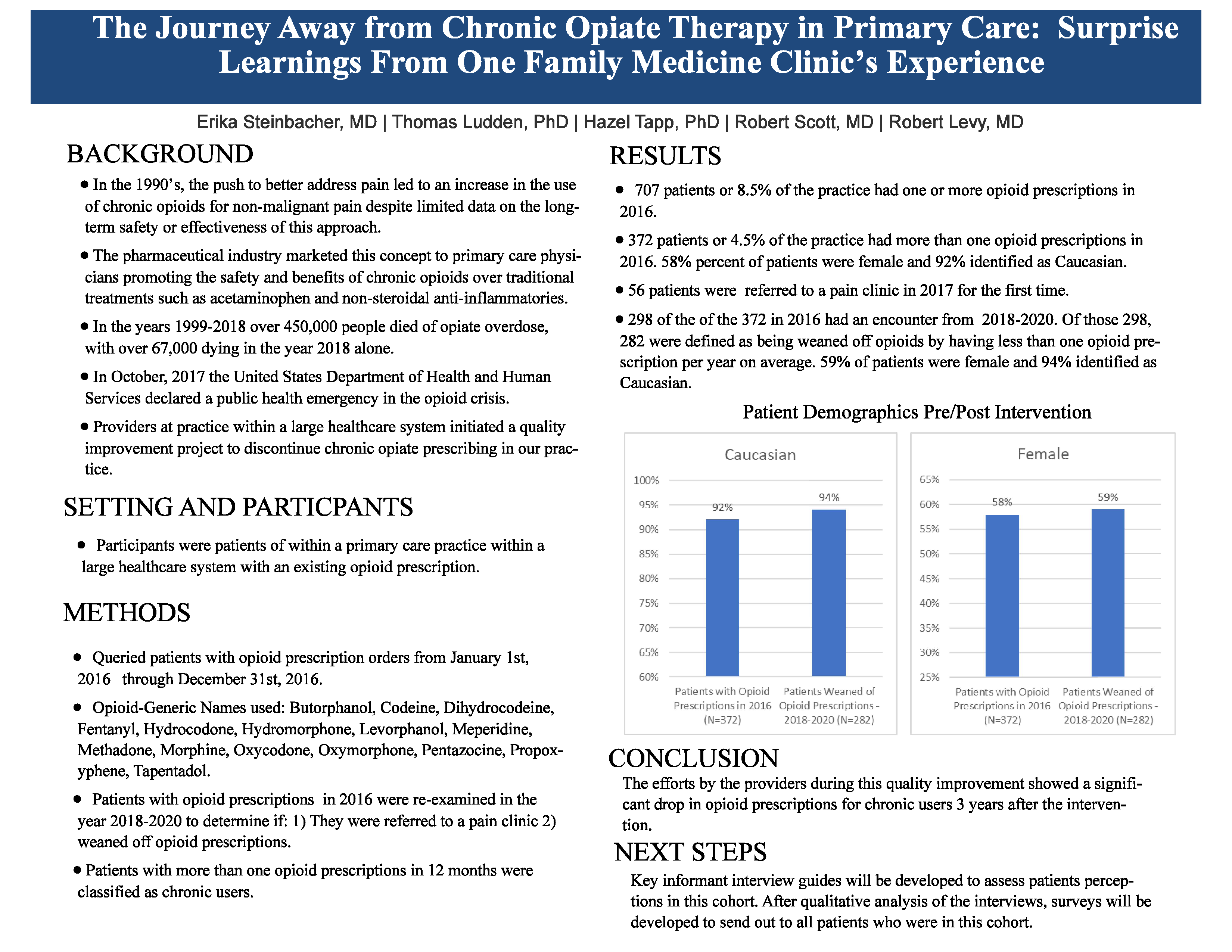PRP072: Reducing Chronic Opiate Prescribing in Primary Care: One Primary Care Clinic’s Unexpected Learnings
Erika Steinbacher, MD; Hazel Tapp, PhD, PhD
Abstract
Context: In the 1990’s the push to better address chronic, non-malignant pain led to an increase in the use of chronic opioids despite limited data on the long-term safety or effectiveness. Opiate prescriptions more than tripled in the U.S. in the following decade. The subsequent epidemic of addiction and overdose death along with the added administrative burden of required monitoring and documentation has caused a re-examination of the use of chronic opiates. In 2017, our practice initiated a quality improvement project to discontinue chronic opiate prescribing. Objective: The objective of the current study is to retrospectively analyze the impact of this intervention on patients and providers. Study Design: Mixed methods including retrospective quantitative and qualitative analysis using surveys and focus groups. Setting and Population: Primary care office with 7 physicians. All patients for whom our practice prescribed chronic opiates for non-malignant pain were included. Eligible patients were given 2 options: slowly wean off opiate medication or be referred to pain specialist for continued opiate treatment. Intervention/Instruments: To assess the impact of the intervention on our patients and providers, we are conducting surveys and focus groups with providers and patients. Outcomes measured: Number of patients who: are prescribed chronic opiate therapy before and after the intervention, weaned off opiates and remain off 3 years later, left the practice because of the intervention and/or had adverse events related to the intervention. Also being assessed: quality of life impact on patients, professional satisfaction impact on providers and change in provider estimation of the difficulty of the intervention. Results: We performed the intervention on 100% of eligible patients. The results of the analyses of the impact are pending. Expected Outcomes: We expect to find that providers who considered weaning patients off opiates an insurmountable task now see it as achievable for many patients. We expect to see that the patients who weaned off opiates experienced at least no worse and possibly improved quality of life. We also expect to see an improvement in the doctor-patient relationship and a decreased provider administrative burden. We hope to demonstrate for other primary care physicians that this intervention is not only achievable but has the potential to improve lives of both patients and providers.

Diane Harper
harperdi@med.umich.edu 11/21/2021Thank you for sharing with us at NAPCRG.